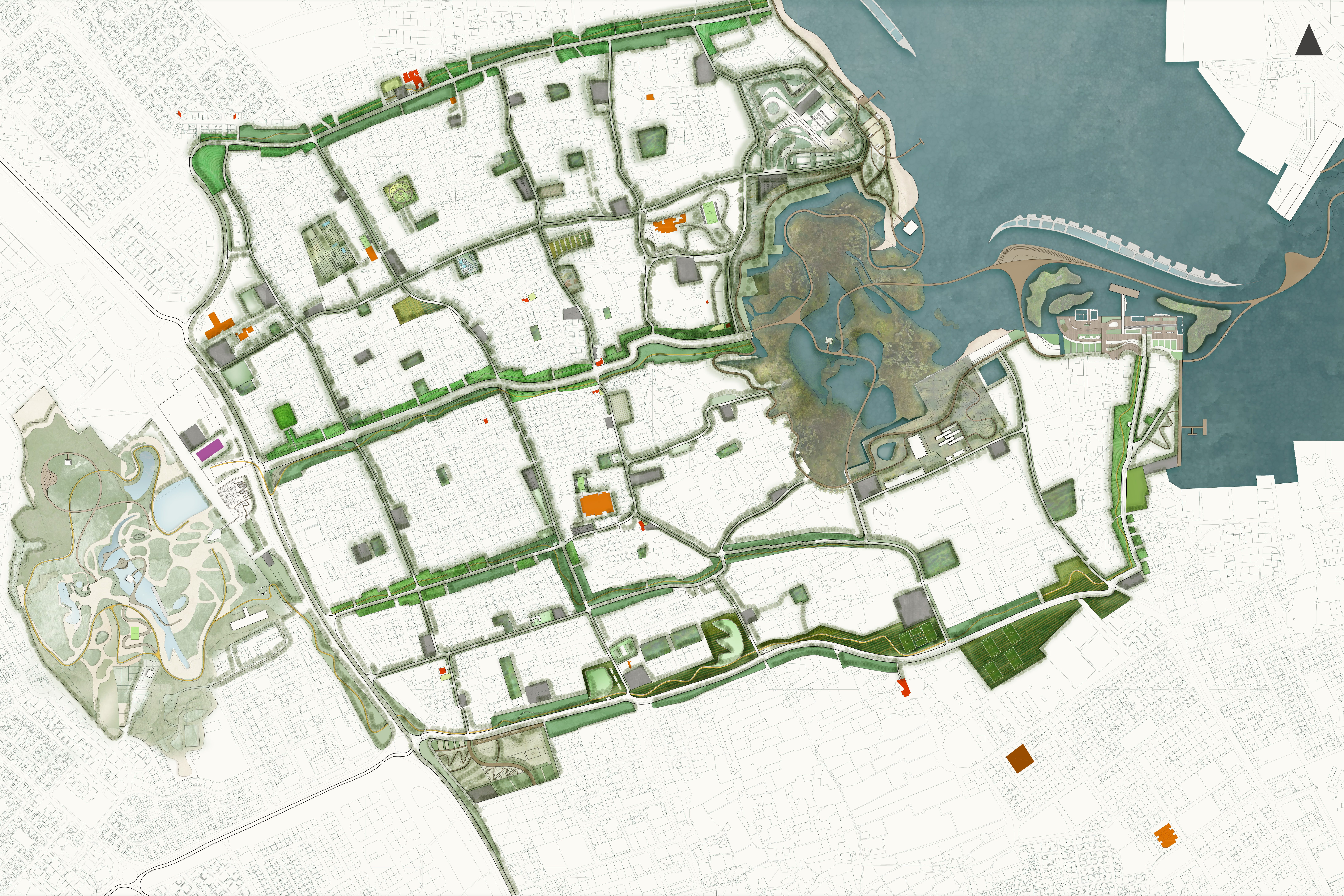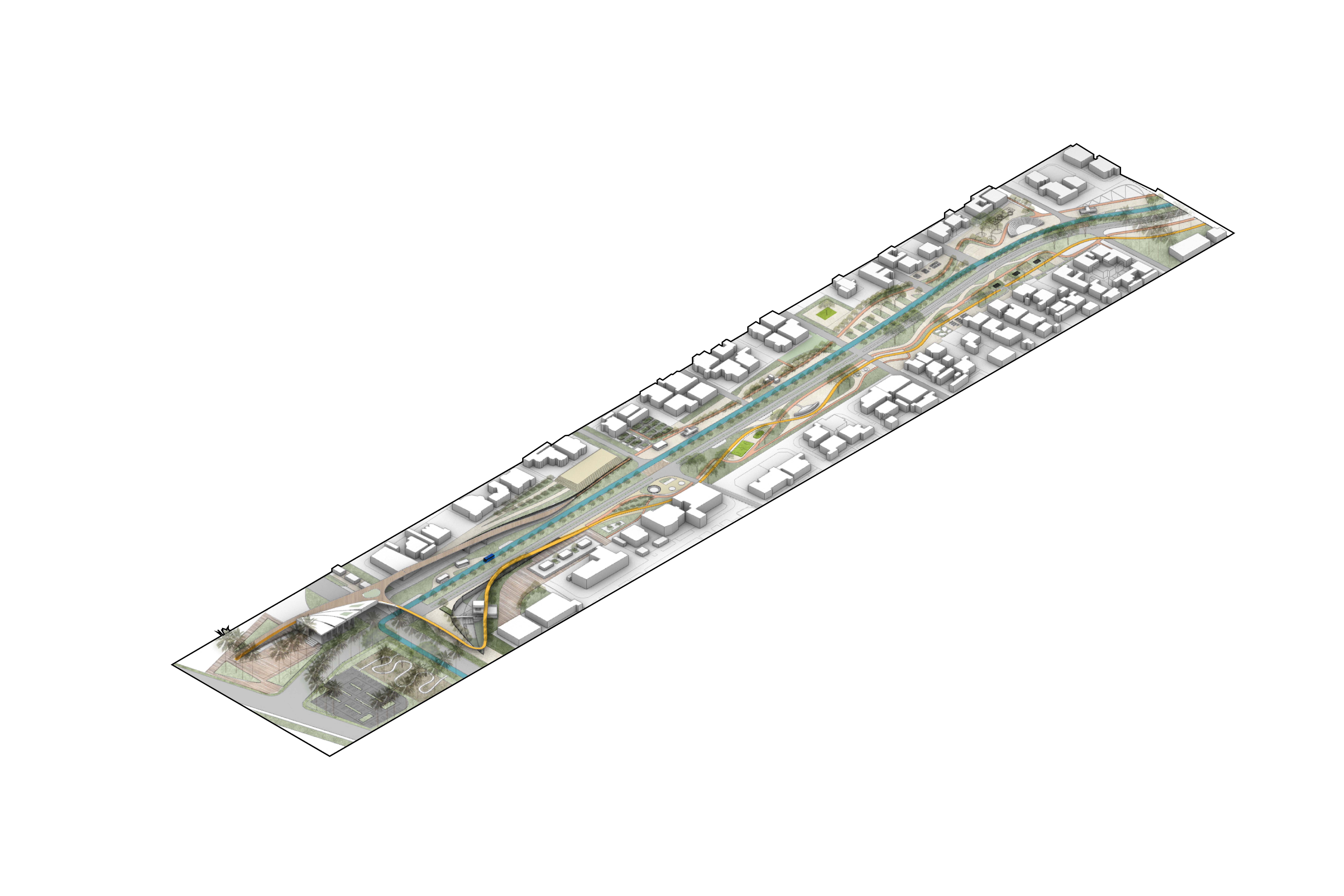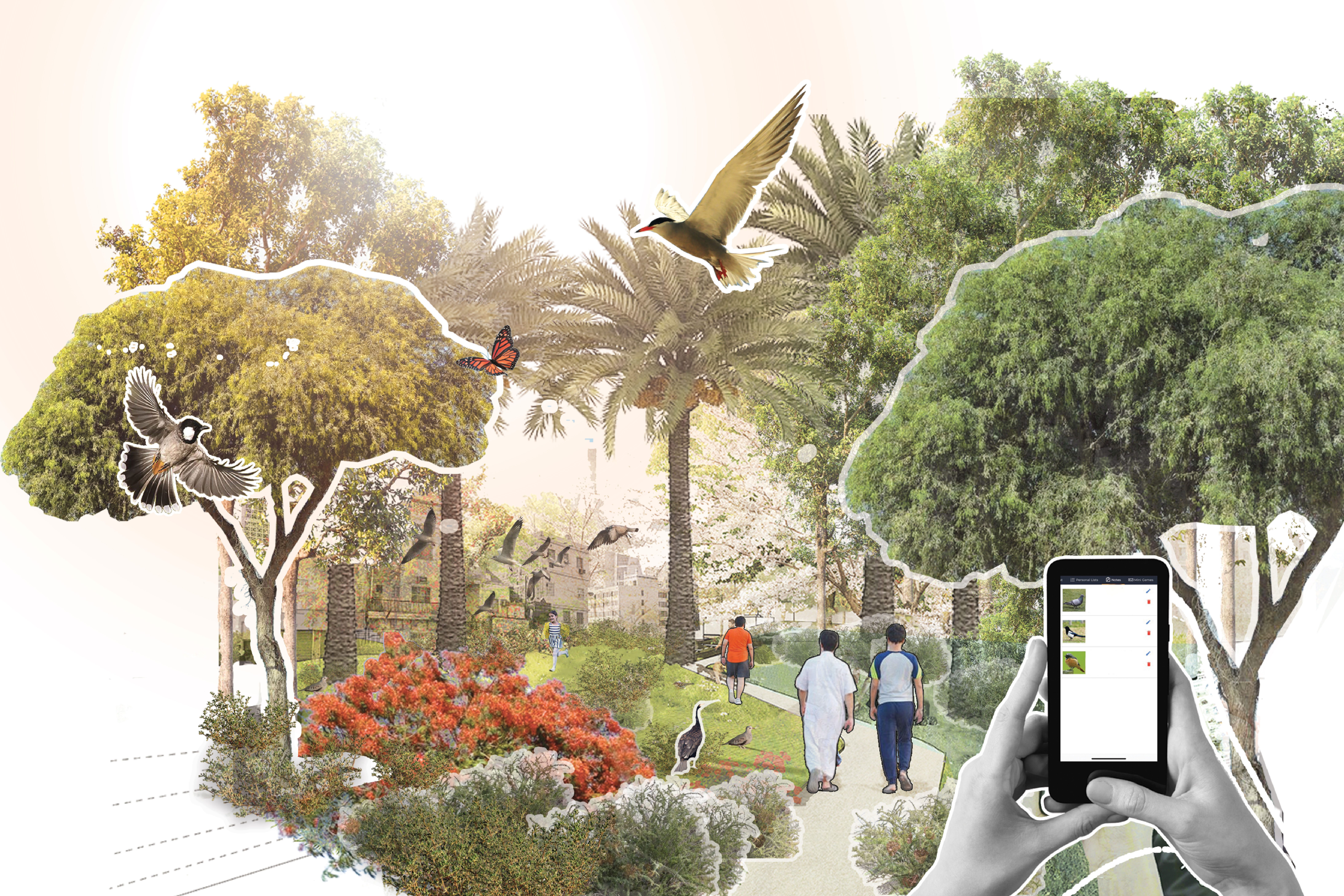Project implementation: Bahrain
Project development: Lebanon
Students: Maya Haidar Clara Saliba
Advisor: Sandra Frem
Once a thriving mosaic of terrestrial and marine habitats, Tubli Bay is one of Bahrain’s last biodiverse territories—and one of only eight main protected ecological sites in the kingdom.
Located just south of the capital, Manama, the bay has historically sustained surrounding communities through fisheries, pearl diving, and agriculture. Its shallow waters nurture crustaceans and shrimp, while mangrove patches along the eastern edge form critical landing sites for migratory birds. This unique combination of ecological richness and cultural heritage once made Tubli Bay a vital economic, social, and environmental asset. Yet despite its ecological significance and strategic location, Tubli Bay has long been marginalized in governmental planning. Today, however, its biodiversity and the livelihoods it supports are under severe threat from industrial encroachment, pollution, and climate change.
Eco-commons reimagines Tubli Bay as an ecological rehabilitation and green infrastructure initiative that connects and amplifies marine and urban biodiversity through a continuous network of habitats for migratory birds, marine life, and terrestrial species. This regenerative framework is not only ecological—it is urban, social, and economic.
The proposed habitat network doubles as a shaded microclimate corridor, integrating multi-modal mobility, enhancing social infrastructure, and expanding public access to the waterfront. These interventions create cooler, more walkable public spaces while fostering ecological continuity across the bay’s fragmented landscapes.
Eco-commons also lays the groundwork for an economic transition—from a resource-intensive, industry-dominated economy of aluminum smelting and heavy manufacturing to a clean, resilient economy driven by eco-tourism, fair-trade fisheries, and renewable energy production.
Water harvesting, storage, and treatment are embedded within urban landscapes that alternate between habitat restoration, recreational spaces, and shaded gathering areas. This layered design addresses multiple threats at once—heatwaves, droughts, flash floods, and shoreline erosion—while improving local microclimates and expanding biodiversity.
Crucially, the project positions communal stewardship as the foundation for long-term resilience. By involving local communities in habitat care, resource management, and eco-tourism operations, Eco-commons not only restores ecosystems but also strengthens social bonds and generates equitable economic opportunities.
Through biodiversity restoration, climate adaptation, and a just economic shift, Eco-commons transforms Tubli Bay into a living, resilient, and regenerative landscape—where environmental health, social vitality, and economic prosperity are mutually reinforcing.




